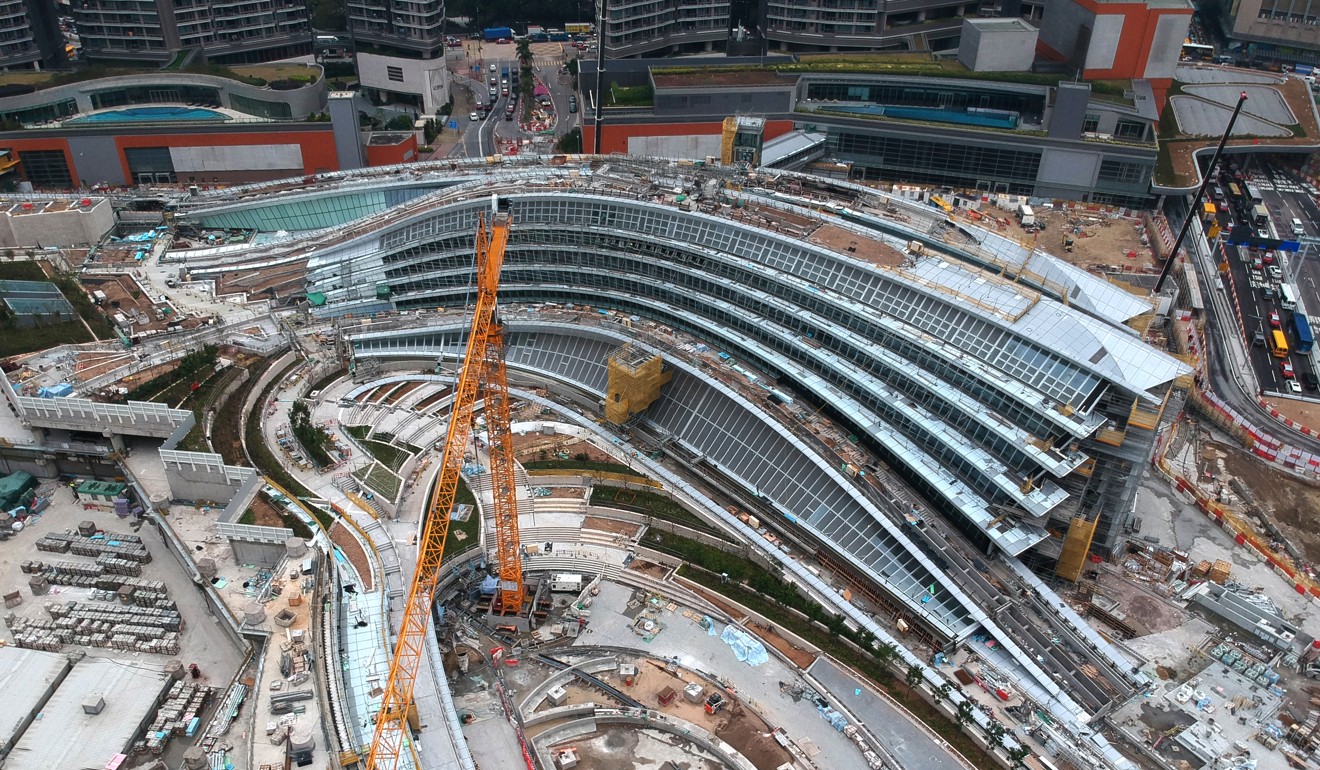
Suspension of Hong Kong cross-border train tests brings bigger problems, former railway boss Michael Tien says
He says it’s crucial to continue trials to uncover other potential bugs following derailment incident, since plan is to start passenger services from September
The MTR Corporation’s decision to suspend testing trains for Hong Kong’s new express rail link to mainland China was a “knee-jerk reaction” to a derailment incident and would only lead to bigger problems in the future, former railway boss and lawmaker Michael Tien Puk-sun said on Friday.
Tien, who was chairman of rail operator KCR before it merged with MTR Corp in 2007, said the operator should go “full speed ahead” and continue running tests to uncover other bugs, especially since it intended to begin passenger services in September on the HK$84.4 billion (US$10.7 billion) rail link.
Hong Kong express rail will not run until proven safe after derailment
“I don’t know why they stopped the testing. I thought they would go full speed ahead ... assuming there may be other [problems],” he said. “If we stop tests now, what do we do? Further tests after this [may be too late] and will involve passengers.”
If we stop tests now, what do we do? Further tests after this [may be too late] and involve passengers
On Wednesday, the MTR Corp said it had put the brakes on tests two days after starting the process, as it investigated how four wheels on a French-designed, made-in-China train had “shifted out of position” during a trial run. Train depot staff discovered this during an inspection at 9.15pm on Tuesday night.
The government demanded that the MTR Corp produce an investigation report “as soon as possible” to determine the cause of the incident and take measures to prevent it from recurring.
The operator’s initial examination found the derailment was isolated to the maintenance depot and there were no widespread defects across the rail line.
On Friday Chan said he would not speculate on the cause of the incident but added he could not see why the derailment incident would affect the proposed start of train services in September. However, he did not elaborate on his beliefs.

The cross-border rail link would connect Hong Kong with the mainland’s vast high-speed rail network for the first time. A one-way ticket for the 48-minute journey from Hong Kong to Guangzhou will cost HK$260.
What would high-speed rail joint checkpoint mean for Hong Kong’s autonomy?
Pro-democracy lawmakers protested against Ip’s decision and chanted from their seats, taking issue with a “vague” choice of words in the bill’s foreword. It currently says that a “certain area” in the terminus would be considered a mainland port section and not Hong Kong territory for “a certain purpose”.
Democratic Party lawmaker Lam Cheuk-ting questioned why the foreword did not specify the exact location in the terminus where the joint checkpoint would be located. NeoDemocrat legislator Gary Fan Kwok-wai asked: “Isn’t it better to be more accurate and clearer when drafting laws?”
Is Hong Kong about to ‘cede’ land to Beijing at joint checkpoint?
Legco will host a 10-hour public hearing on Saturday, in which 188 individuals or groups will present their views. Ahead of that, the Progressive Lawyers Group issued a statement saying that by allowing mainland laws to be applied in the city, the government was taking the issue over the constitution away from local courts and acceding to the National People’s Congress Standing Committee, the country’s top legislative body.
The group argued it would set a “worst precedent” since the 1997 return of Hong Kong to Chinese sovereignty, and that implementing the co-location plan would be a move to “rule by decree” that would harm the city’s rule of law.


